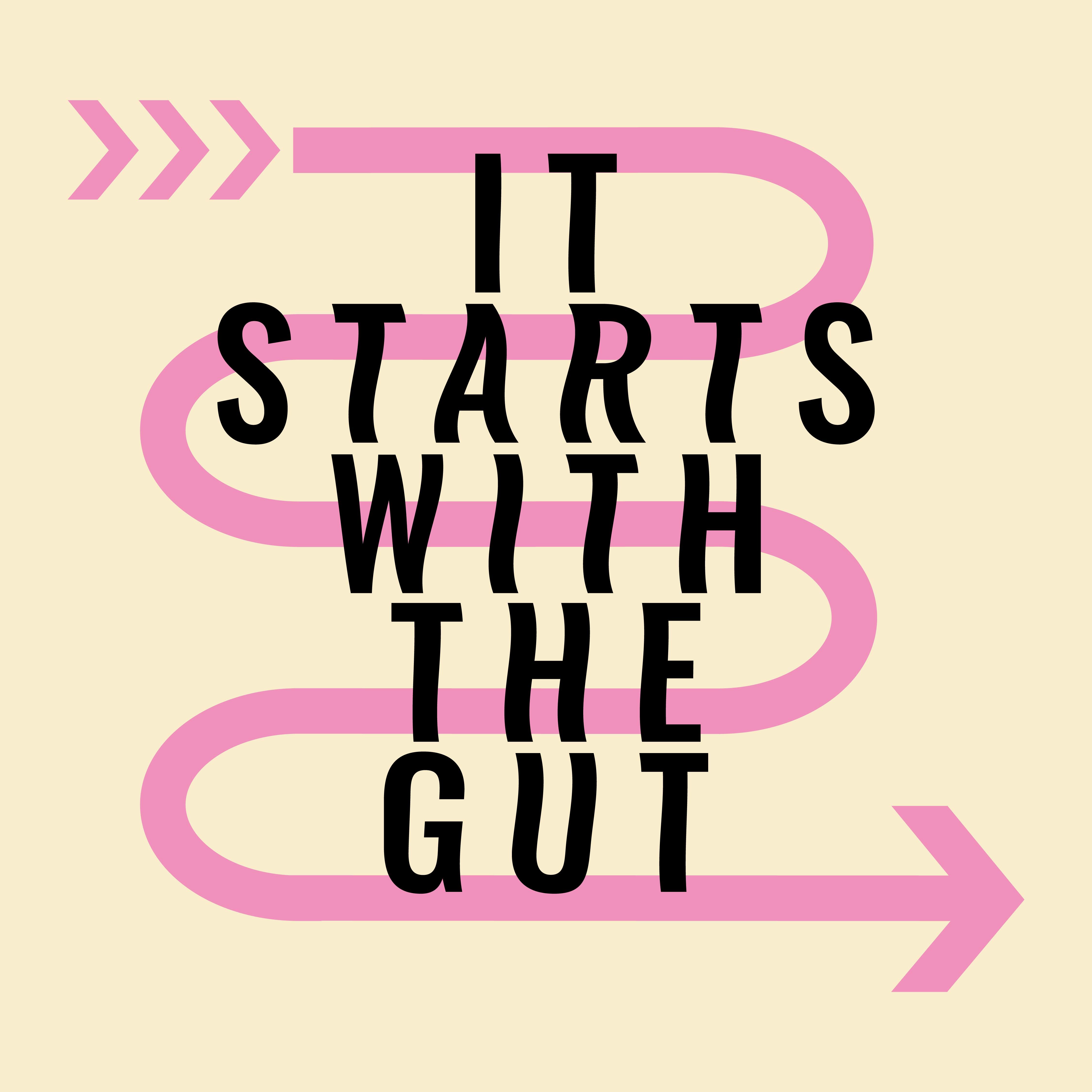28 Jul, 2021
Phoebe Liebling's guide to intermittent fasting
We speak to Nutritional Therapist Phoebe Liebling about the benefits of intermittent fasting & how it impacts our gut health. She also introduces our new 3-Day Reset plan.
HealthI don’t know about you but I am absolutely terrible at sitting still. I love to be on the move, involved in some kind of activity, mischief or general escapade. It feeds my soul & makes my life a happier place. Saying this though I do have significant points in my day dedicated solely to rest, because eternal motion would be a tad unsustainable unless you were some kind of automotive locomotive.
As a basic introduction, providing an opportunity to rest and reset is what we are doing for our body when we adopt a well-managed intermittent fasting plan, because asking our system to be ever alert is equally as unfair as me suggesting you go for a walk instead of going to bed in the evening.
How does stress impact the body?
Surviving modern living is a stressful experience, and whether you feel this on the surface your body will often be existing in what we refer to as sympathetic nervous system dominance (AKA the fight or flight response). This is associated with numerous long term health concerns but in the short term the big things to highlight are the impacts of this on your blood sugar and consequently insulin levels, as well as your digestive health. Glucose (sugar) is the primary form of energy that fuels our body, but it needs to be kept within a tightly controlled range when present in our blood stream.
This is where the science behind eating more complex carbohydrates (e.g. brown rice, quinoa, root vegetables with their skins) instead of refined white carbs comes from, as without their husk the energy contained within these foods enters circulation too fast, causes a resultant insulin spike to bring it back into range. The level then tends to dip too swiftly, we feel hungry again especially for sweeter things, and thus the unhappy rollercoaster continues.
What we see when stress levels are higher is that our insulin levels naturally rise too, in fact they go up by three times the amount just to have the same blood sugar controlling effects that they would do if we didn’t have stress hormones circulating at the same time. This is why we often crave carbs and sweets when we’re tired or under pressure.

How can snacking affect the body?
That all sounds a bit stark and I’m sure some people will be thinking that they aren’t really that burdened so their blood sugar can’t be being bothersome, so I’ll come at you with a different idea which I see in people a lot and that is a tendency to graze.
Again, this comes back to the idea that every time you feed the body, it needs to respond, and that takes resources. It also tends to mean that our insulin levels never quite fall in between periods of eating, and if something is omnipresent, we don’t tend to take that much notice of it after a while do we?
This is what happens with insulin - we become less sensitive to its actions, oh and then we need more of it, and then we’re back to what I was describing before.
How will intermittent fasting help our body and our digestive health?
What we are aiming to do with an extended period of not eating, therefore, is to give the body the opportunity to become sensitive once more to that energy uptake mechanism, akin to the joy of a surprise bunch of flowers that you get once in a while versus the pot plant you see every day in your living room.
In doing so we increase metabolic efficiency, balance energy levels and actually differentiate between what true hunger and habitual hunger is. This is not a case of denying yourself of food when you need fuel, in fact it’s the opposite.

Before I segue into this section however I want to touch on the digestive system very speedily because this is another area that really benefits from a break. Our probiotic bacteria outnumber us by a casual million or two, their actions ranging from nutrient absorption/creation to waste removal and mood stability to touch on just a couple of key roles.
The thing is again they get overwhelmed, and the continuous presence of fresh foodstuffs entering our bowels to be digested means they never get to finish their cycles of activity correctly. This can lead to imbalances between different forms, excess fermentation and intermittent bowel movements.
We often lay blame on our bacteria for issues such as bloating and gas, but more often than not it’s our habits that create the causation for these concerns, the microscopic guys are just doing their jobs (or trying to at least).
How to eat when intermittent fasting
When adopting this form of eating it’s incredibly important to structure your meals in a way that compounds rather than counters the benefits we are looking to harness. Breaking your fast with an abundantly colourful, fibre and protein rich meal, with some slow burning carbs and healthy fats keeps your blood sugar as steady as a rock, then adding texture to signal to your digestion that food is now coming, this all ties together to make you the master of your metabolism. A mix of cooked ingredients with just a touch of raw will make the nutrient absorption process nice and easy.
Fasting should be a gift to your guts, not an assault course for it to master. That's why our 3-Day Reset menu has been created in the specific way it has been. It ticks the aforementioned boxes for how to break your fast, and also comes with a supplemental snack, again protein rich to prevent blood sugar fluctuations, and then a lovely light dinner means your digestive system is not working away when you go to bed, which is actually the period of time your internal support team are most active, because they don’t need to be concerned with supporting your wakeful needs.
This will then consequently feed into a far more restful sleep cycle, waking up with more vitality, feeling better refreshed and ready to go for the day. Which further enhances metabolic efficiency because your energy is coming from a true place rather than a reliance on quick energy, stimulants and such like.
What to do after an intermittent fasting plan
With regards to a longer-term picture some will find that skipping breakfast really suits them some/all of the time, and for others it’s more just about now knowing that a protein rich, savoury start to their day supports their energy so much better than what they were eating before.
In terms of moving back into your more regular habits the most advisable way to do this is gradually. Lighter, warm meals such as a stir fry with organic tofu, eggs, white fish or poultry, an omelette with lots of fresh herbs and some avocado, or just a lovely compendium of roasted rainbow veg + a herby sauce and your protein of choice, will suit your newly rejuvenated system the best.
This would be in contrast to heavier red meats (should you include these in your routine), richer sauces & higher fat dairy products.
I often suggest a progression of the broth based meals if people have enjoyed this style of meal in the evening, adding a slightly larger portion of protein and topping with nuts or seeds, or for those who want something with a little more body to it whilst still keeping lunch as their main meal then a savoury quinoa porridge (cook in broth + turmeric + a splash of coconut milk) dappled with mushrooms, spring onions and plenty of wilted greens goes down a storm too.
I would also note the specific benefits of choosing fermented foods at this point too. Intertwining sauerkraut, kimchi, kefir and fresh miso with your other ingredients just adding that extra beneficial edge to your intestinal bacteria diversity.

The 3-Day Reset and setting long-term healthy habits
The beauty of this 3-day reset is that it provides that perfect opportunity to reconnect with your body’s needs, to blow away mental fogginess, banish sluggish bowels and bits of bloating, and then build on going forward.
We have thoroughly enjoyed creating this for you to try, and do hope that your experience of eating in this way brings equal amounts of pleasure, personal insight and perhaps a new purpose to your food preferences.
The 3-Day Reset meal plan is available to purchase nationwide here.
The 3-Day Reset isn’t just about stepping back from constant snacking, it’s a chance to genuinely listen to what your body needs and respond with intention. By embracing the intermittent fasting benefits discussed, you're setting the stage for longer-term wellbeing. Add in the convenience of our thoughtfully designed healthy meal delivery and this approach becomes not just sustainable but enjoyable. The advantages of intermittent fasting aren’t just physiological, they're deeply personal too, reconnecting you with clarity, vitality and a fresh appreciation for nourishing food.



